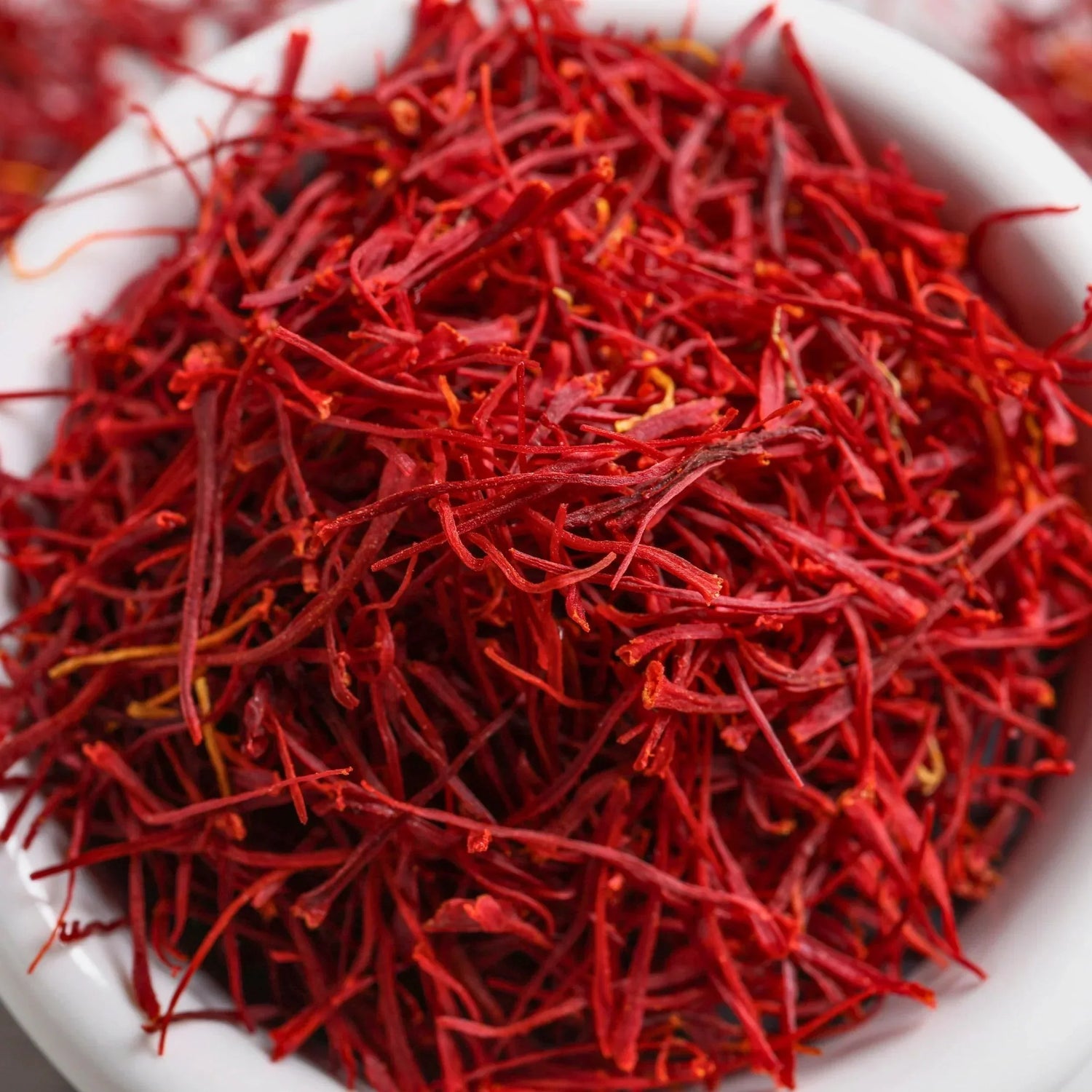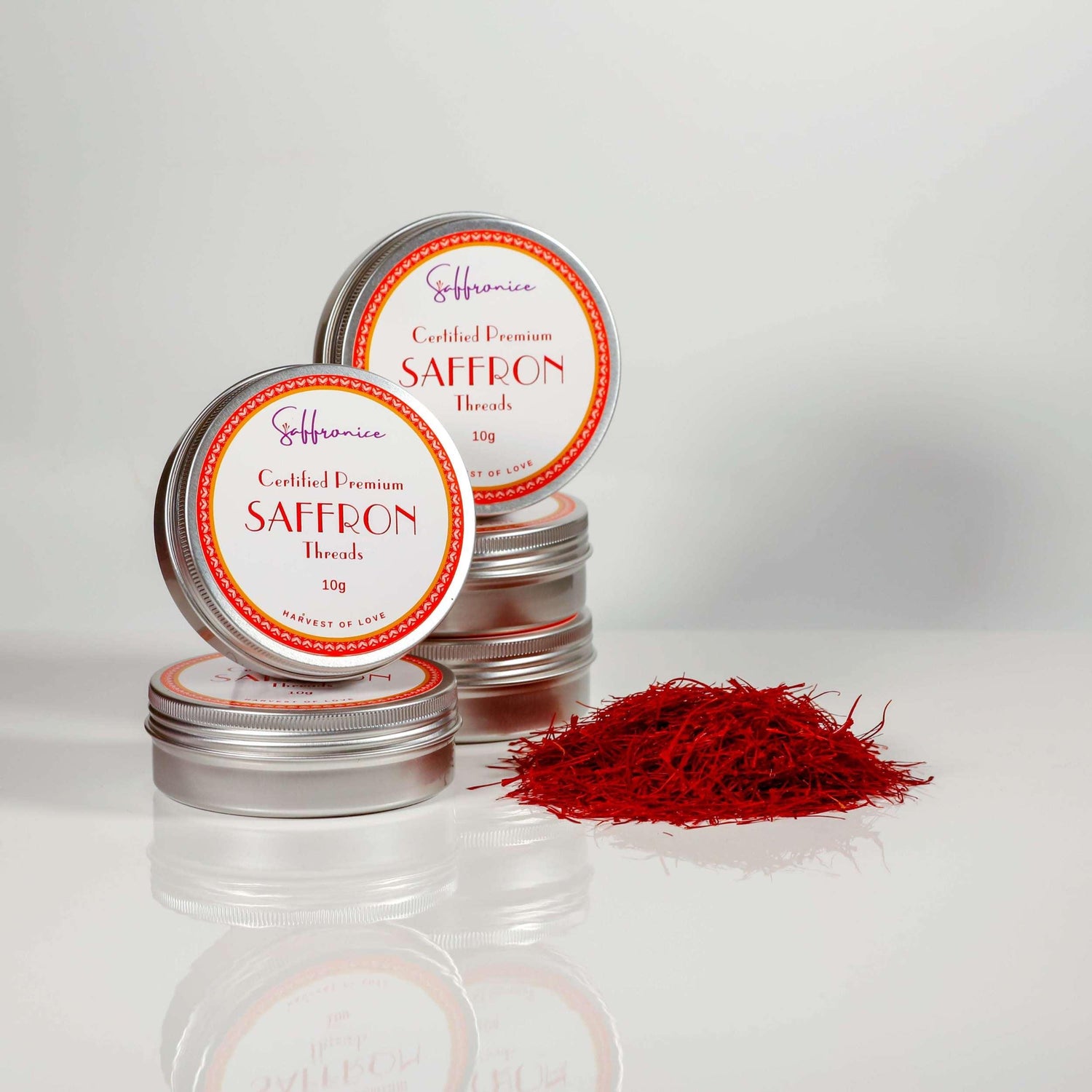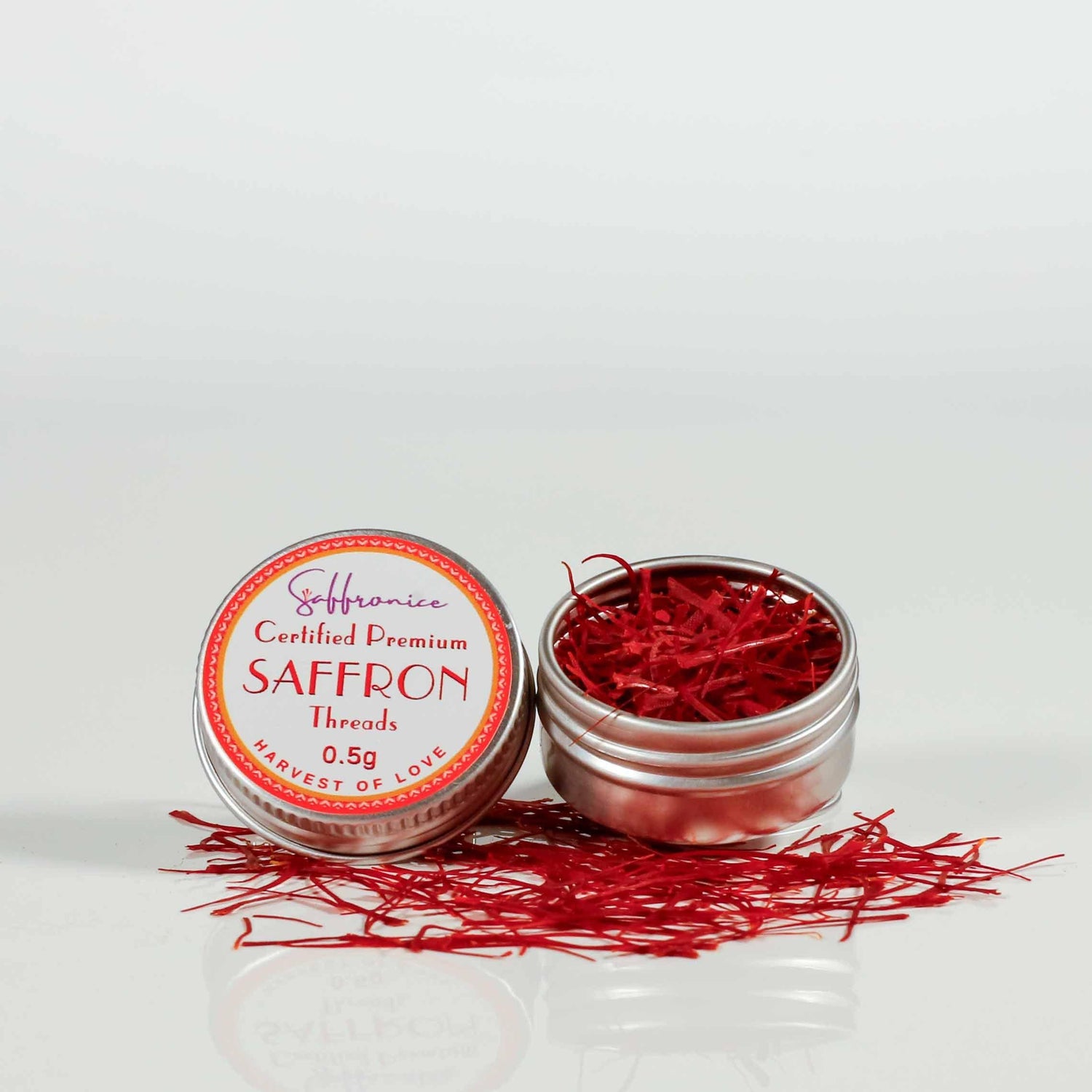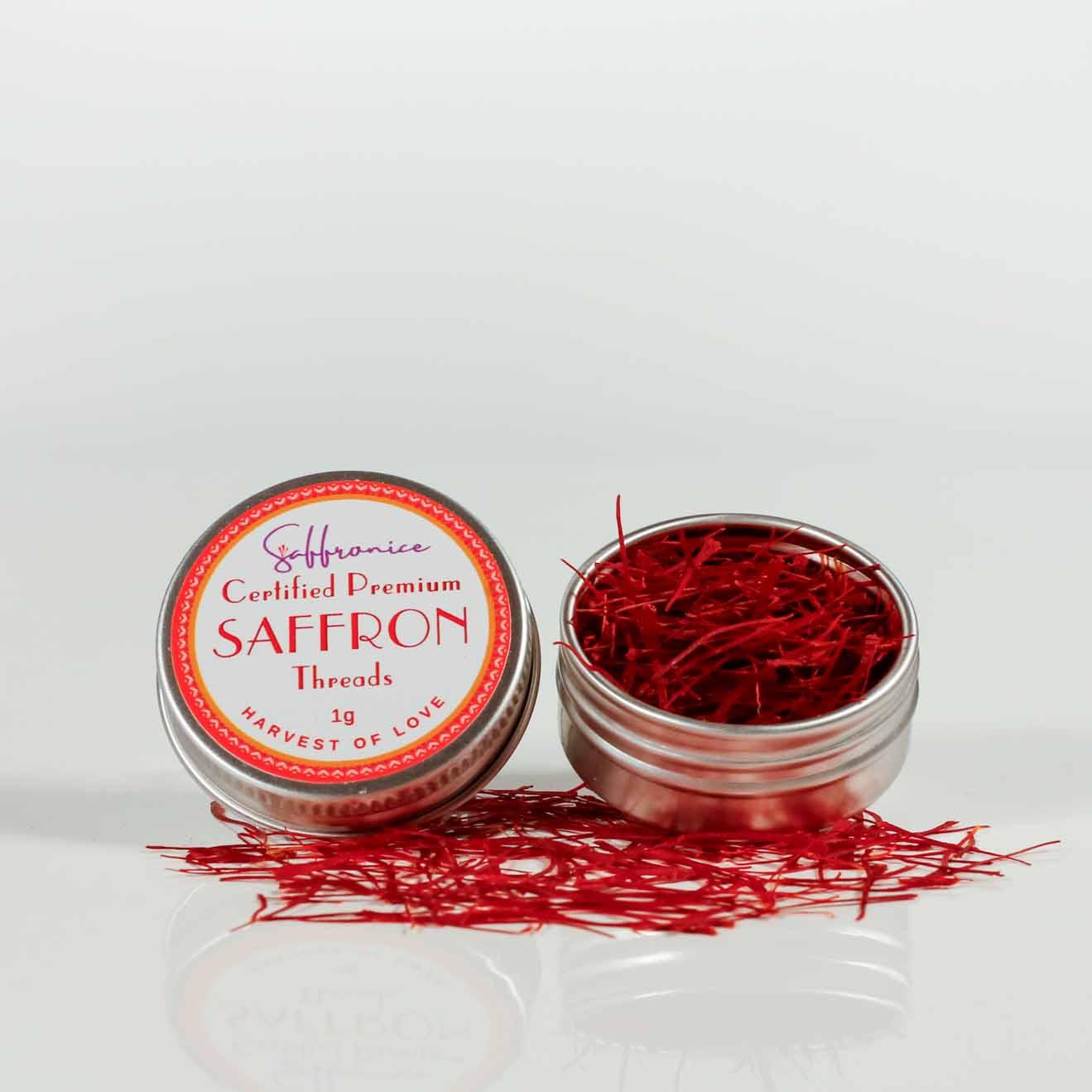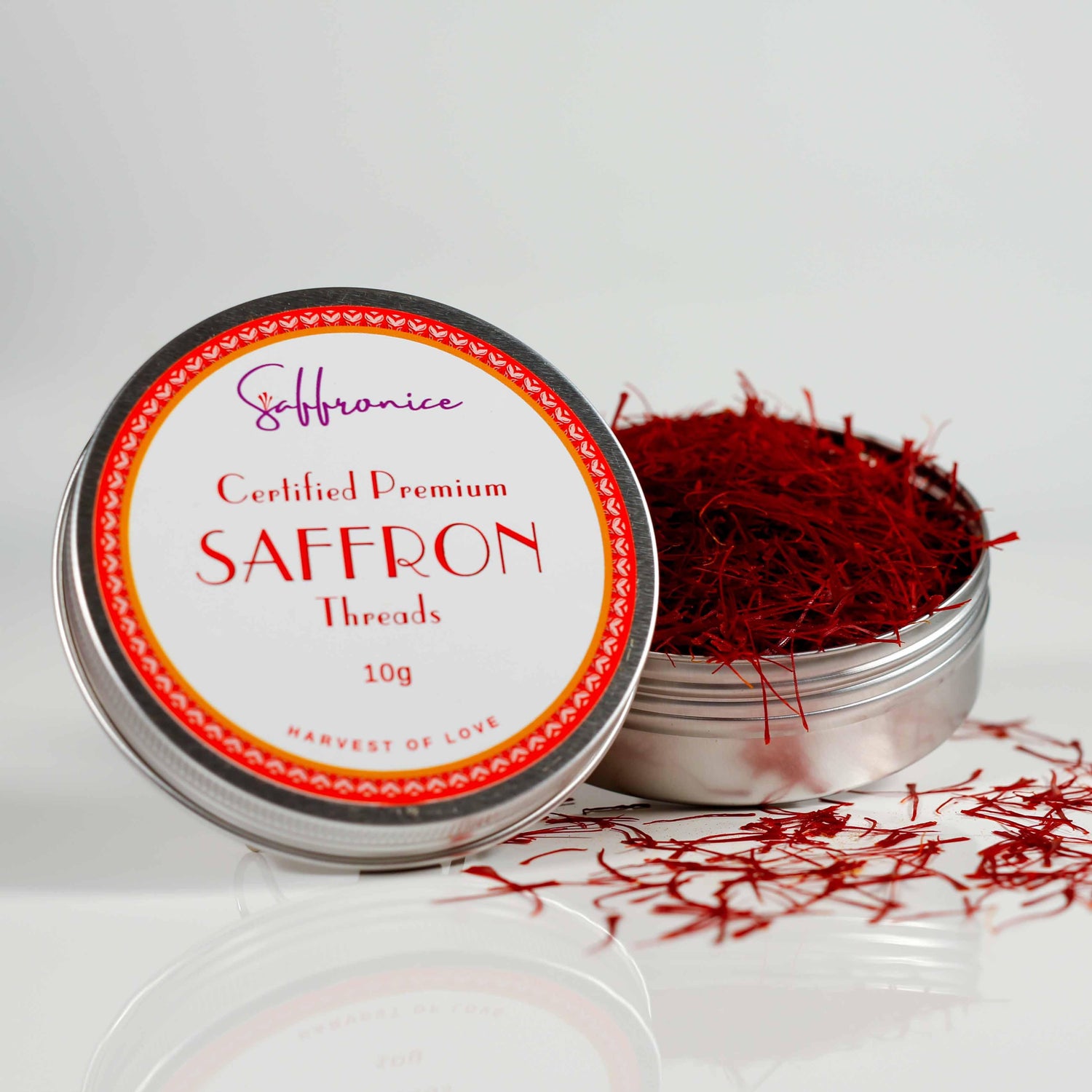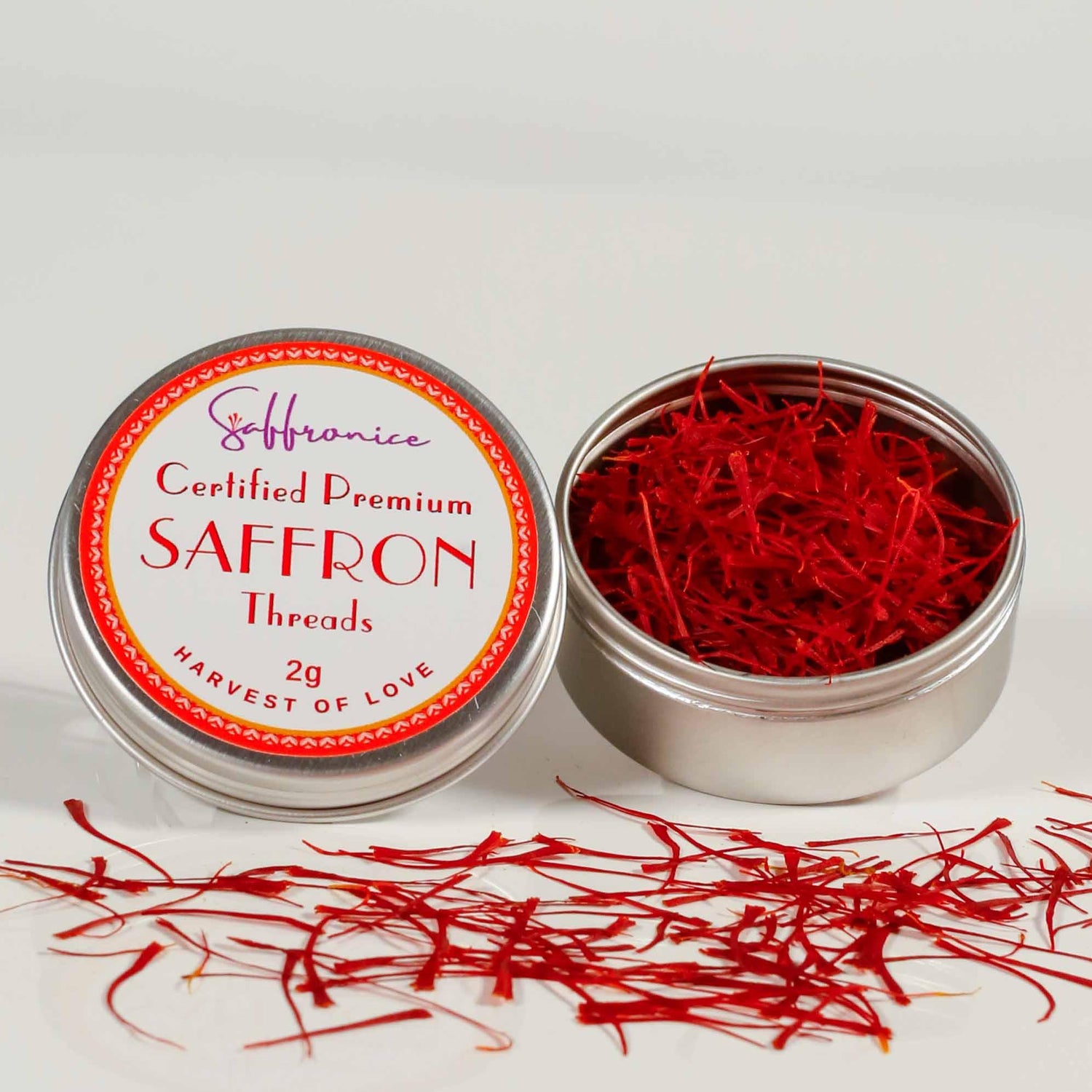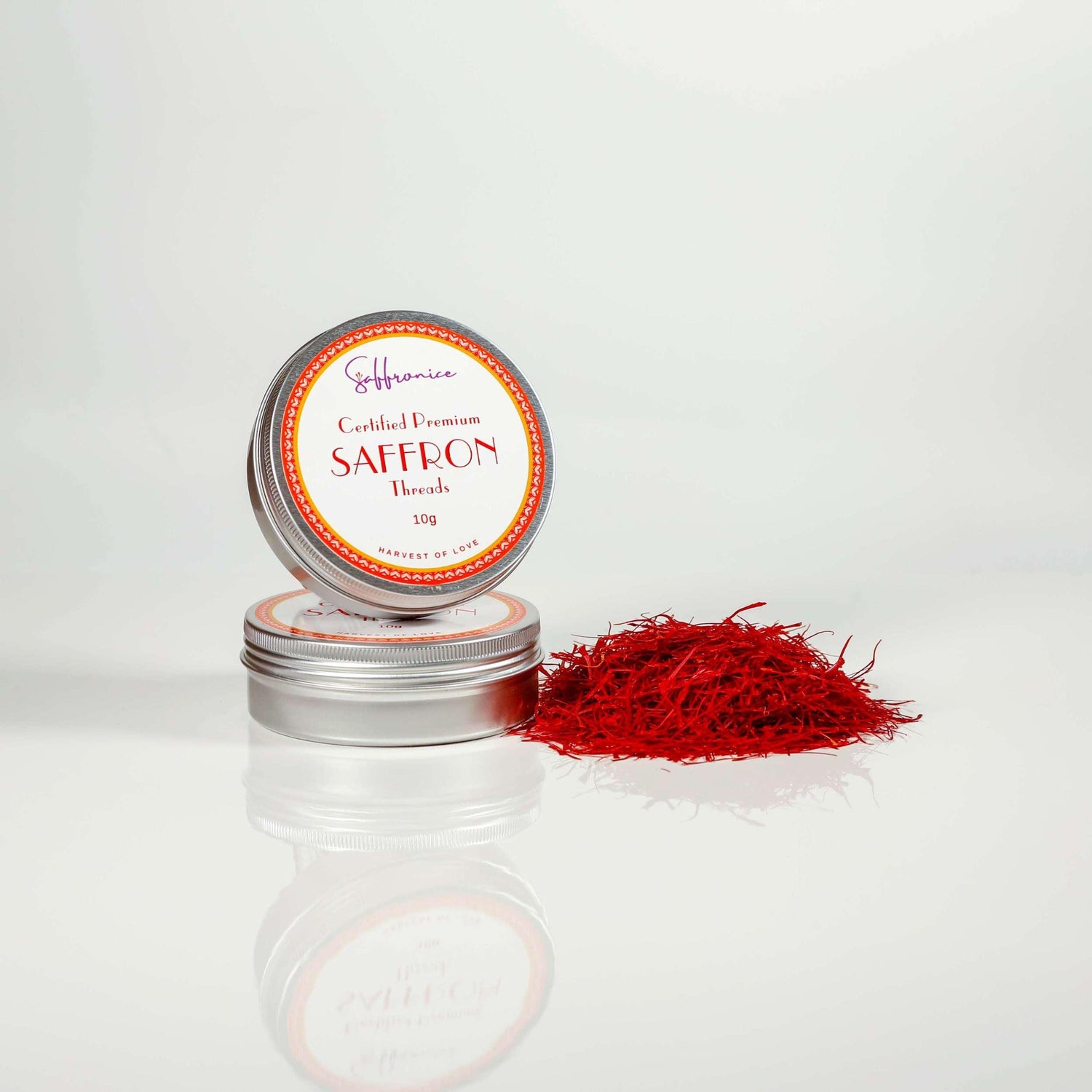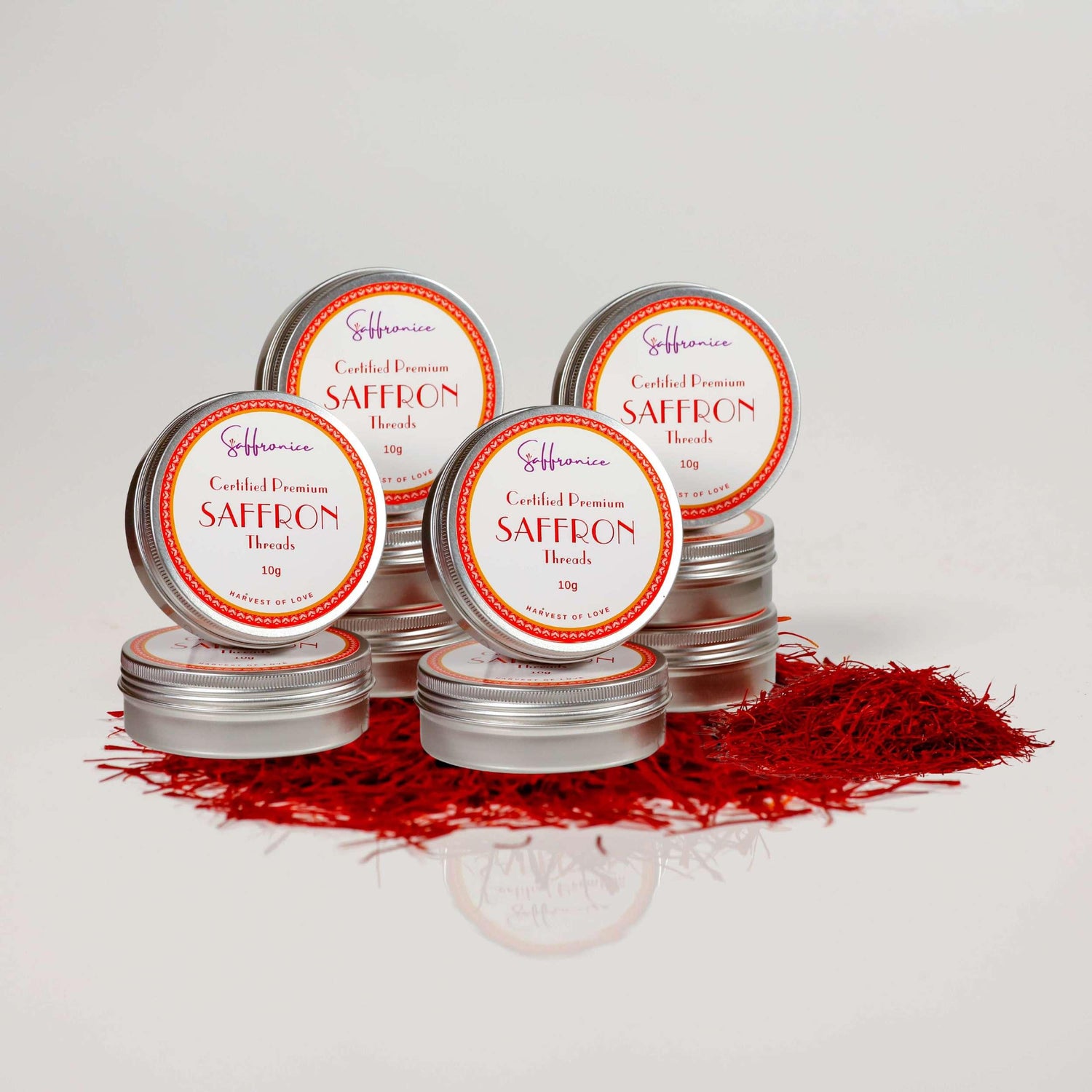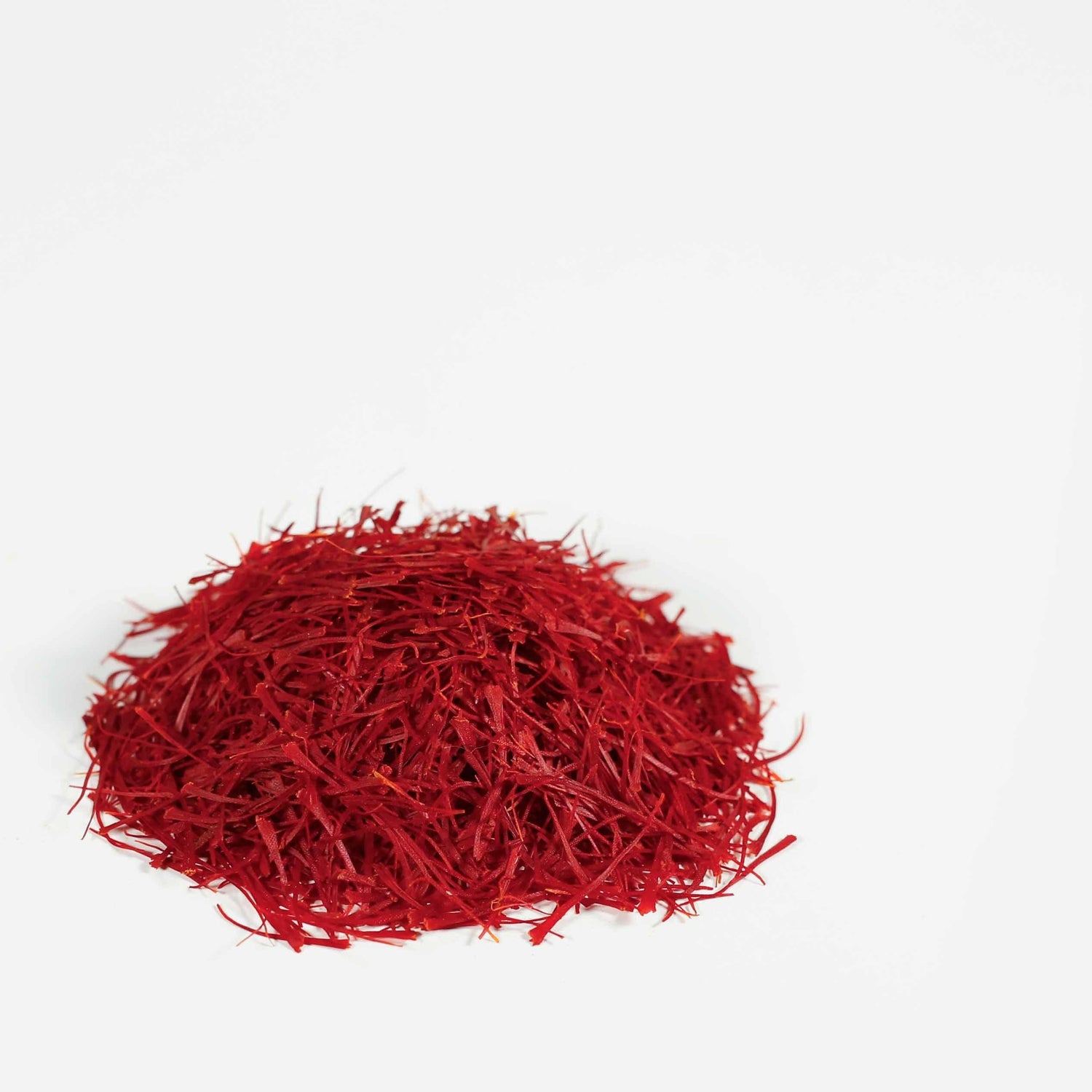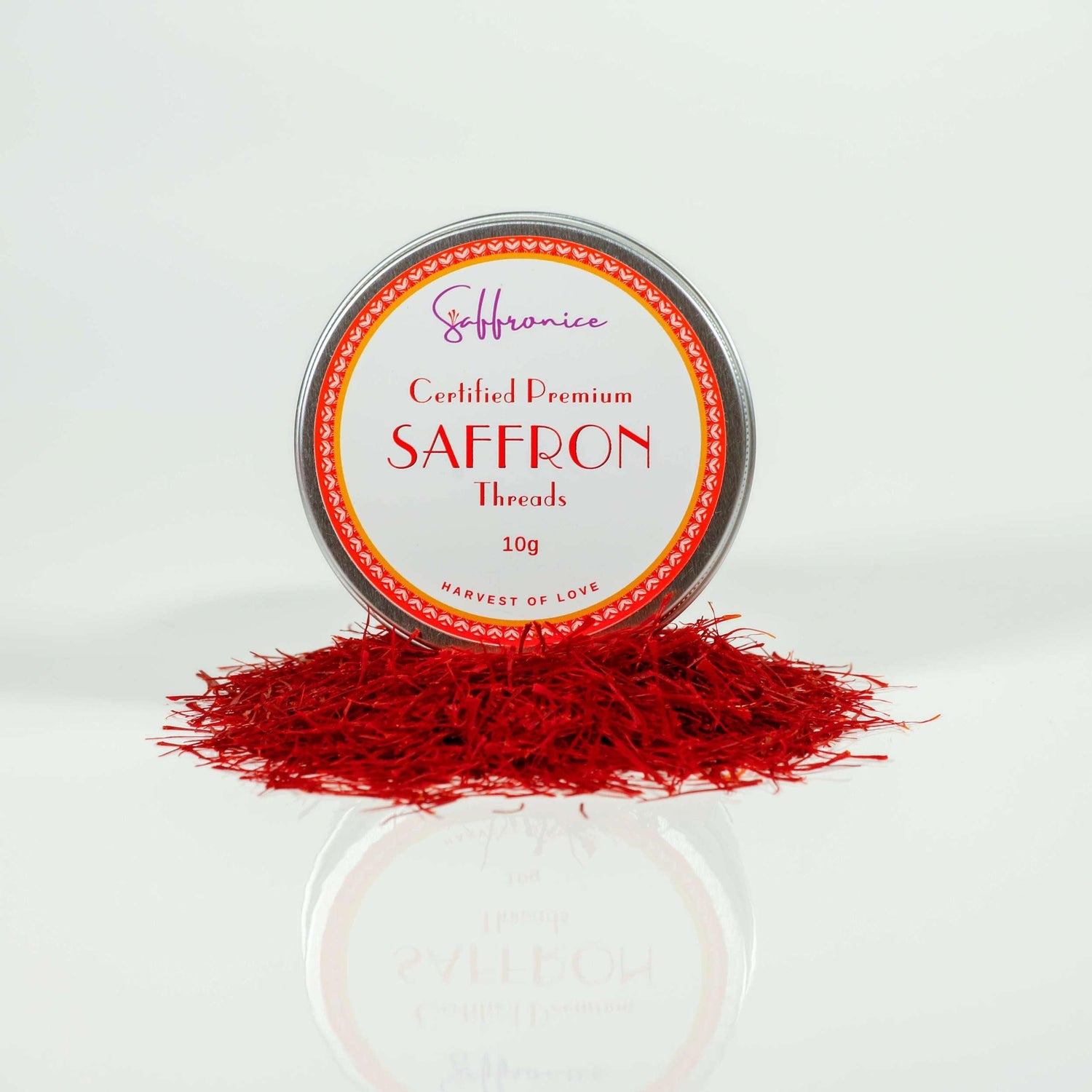Who Should Avoid Saffron Powder?
Saffron powder, made from the red stigmas of the Crocus sativus flower, is widely used for its unique aroma, flavour, and medicinal properties. It has been praised for mood enhancement, antioxidant effects, and its role in traditional medicine. However, despite its many benefits, saffron powder isn’t suitable for everyone.
Certain individuals may experience adverse reactions or health risks due to underlying conditions or life stages. Understanding who should avoid or limit saffron consumption helps ensure its safe and beneficial use. This guide will help you make an informed decision about incorporating saffron powder into your diet and lifestyle.

Understanding Saffron Powder
What is Saffron Powder?
Saffron powder is derived from the Crocus sativus flower, commonly known as the saffron crocus. It is made by carefully harvesting, drying, and grinding the bright red stigmas and styles of the flower. Due to its labour-intensive harvesting process, saffron is considered one of the most expensive spices in the world.

Common Culinary and Medicinal Uses
Saffron is a key ingredient in many cuisines worldwide and is known for its distinct taste and vibrant colour. Some of its popular uses include:
- Paella – A Spanish dish where saffron gives its signature yellow colour and aroma.
- Risotto Milanese – A classic Italian dish with a delicate saffron-infused flavour.
- Middle Eastern Cuisine – Used in rice dishes like biryani and desserts such as Persian saffron ice cream.
Beyond cooking, saffron has been used in traditional medicine to support digestion, mood balance, and libido.

Nutritional Profile and Health Benefits
Saffron contains potent antioxidants such as crocin, safranal, and picrocrocin, offering several health advantages:
- Mood Enhancement – Studies suggest saffron can reduce symptoms of depression.
- Antioxidant Properties – Its high levels of antioxidants lower oxidative stress.
- Potential Anti-Cancer Effects – Early research indicates saffron may inhibit cancer cell growth.
While these benefits make saffron a valuable spice, certain groups should avoid it due to potential health risks.
Who Should Avoid Saffron Powder?
1. Pregnant Women
Why?
- Miscarriage Risk – High doses of saffron may stimulate uterine contractions, increasing the risk of miscarriage or premature labour.
- Hormonal Effects – Saffron impacts hormonal balance, which can trigger mood swings or hormonal changes during pregnancy.
Recommendations:
✔ Consult your doctor before consuming saffron.
✔ Limit intake to no more than 1.5 grams per day if approved by a healthcare provider.
✔ Consider safer alternatives like ginger or turmeric.
For more details on saffron’s effects during pregnancy, check out our guide: Saffron and Pregnancy: Benefits & Risks.
2. Breastfeeding Mothers
Why?
- Limited Research – There is insufficient data on saffron’s effects on breastfeeding mothers and infants.
- Possible Health Interactions – Since saffron can alter hormone levels, it may affect breast milk composition.
Recommendations:
✔ Avoid saffron until more research is available.
✔ If considering saffron, consult a doctor first.
For safer postpartum alternatives, visit our Saffron for Women’s Health Collection.
3. Individuals with Bipolar Disorder
Why?
- Mood Fluctuations – Saffron affects serotonin levels, which may worsen mood swings in bipolar disorder.
- Medication Interactions – Saffron may interfere with mood stabilizers and antidepressants.
Recommendations:
✔ Consult a healthcare professional before using saffron.
✔ Consider alternative mood-supporting supplements.
Explore Saffron Supplements for Mental Health.
4. People with Bleeding Disorders or Taking Blood Thinners
Why?
- Increased Bleeding Risk – Saffron may slow blood clotting, raising the risk of excessive bleeding.
- Health Interactions – It may interact negatively with anticoagulant medications like Warfarin.
Recommendations:
✔ Avoid saffron if taking blood thinners.
✔ Speak to your doctor before use.
For a detailed look at saffron’s effects on blood health, read our Saffron and Circulatory Health Guide.
5. Older Adults and Children
Why?
- Older Adults – May experience stronger effects due to slower metabolism.
- Children – Limited research on safety for young children.
Recommendations:
✔ Older adults should start with small doses.
✔ Avoid giving saffron to young children unless medically advised.
6. Individuals with Kidney Issues or Allergies
Why?
- May worsen kidney problems in individuals with pre-existing conditions.
- Potential Allergic Reactions – Those allergic to pollen from the Iridaceae plant family may react to saffron powder.
Recommendations:
✔ If you have kidney concerns, consult a doctor before consuming saffron.
✔ Be cautious if you have plant-based allergies.
For allergy-friendly alternatives, visit Our Pure Saffron Collection.
7. Those Consuming High Doses of Saffron
Why?
- Toxicity Risk – Over 5 grams per day can lead to serious health issues, including dizziness, vomiting, and even poisoning.
Recommendations:
✔ Stick to recommended doses to avoid unwanted side effects.
✔ Choose lab-tested, high-quality saffron to avoid contaminated or adulterated products.
Browse our Lab-Tested Saffron Powder for safe, authentic options.
Conclusion
Saffron powder is a versatile and beneficial spice, but it’s essential to use it responsibly. If you belong to any of the high-risk groups mentioned, consult a healthcare professional before adding saffron to your diet.
By making informed choices, you can safely enjoy saffron’s benefits while minimizing risks. For high-quality saffron products and expert advice, visit Saffronice.





